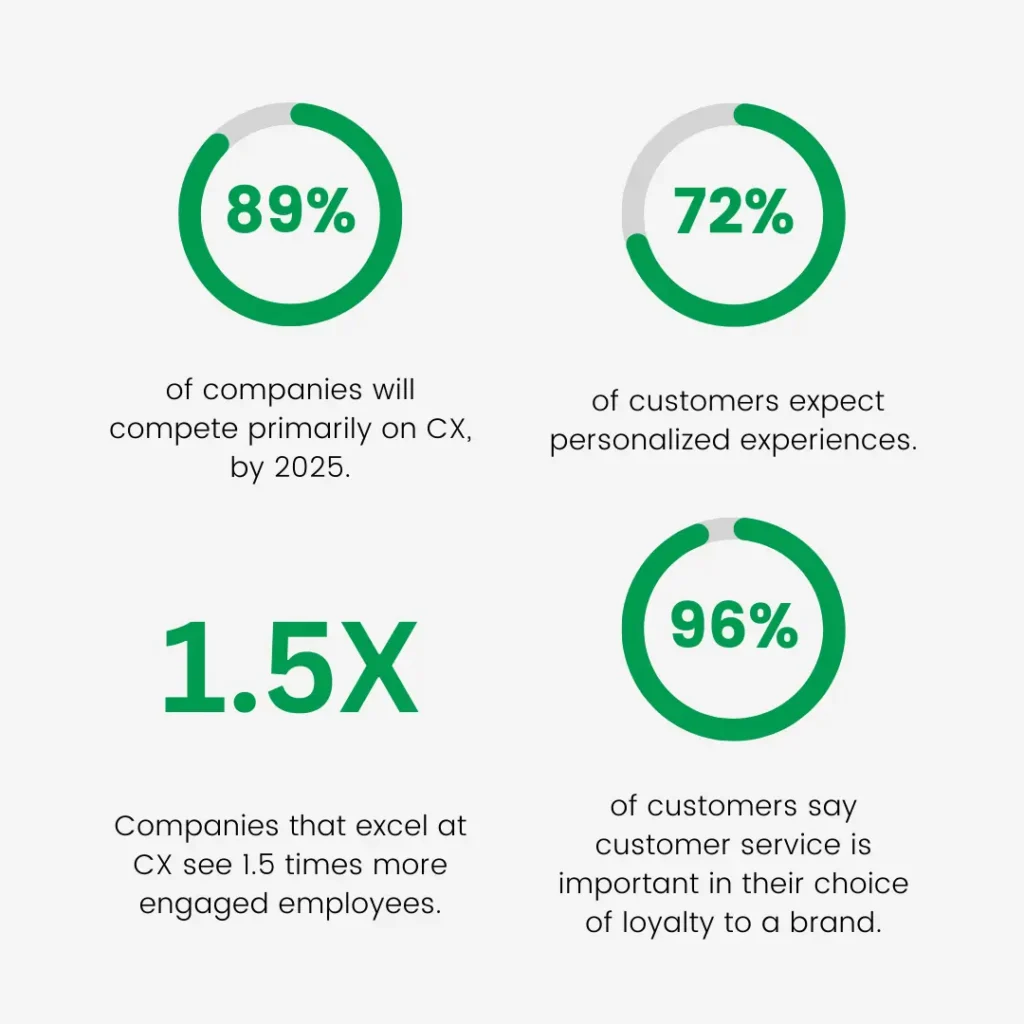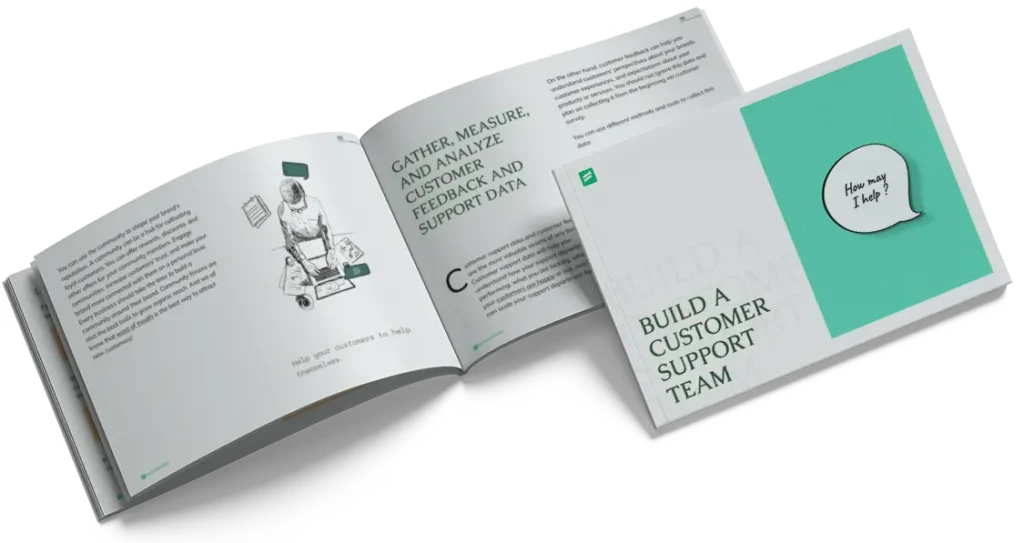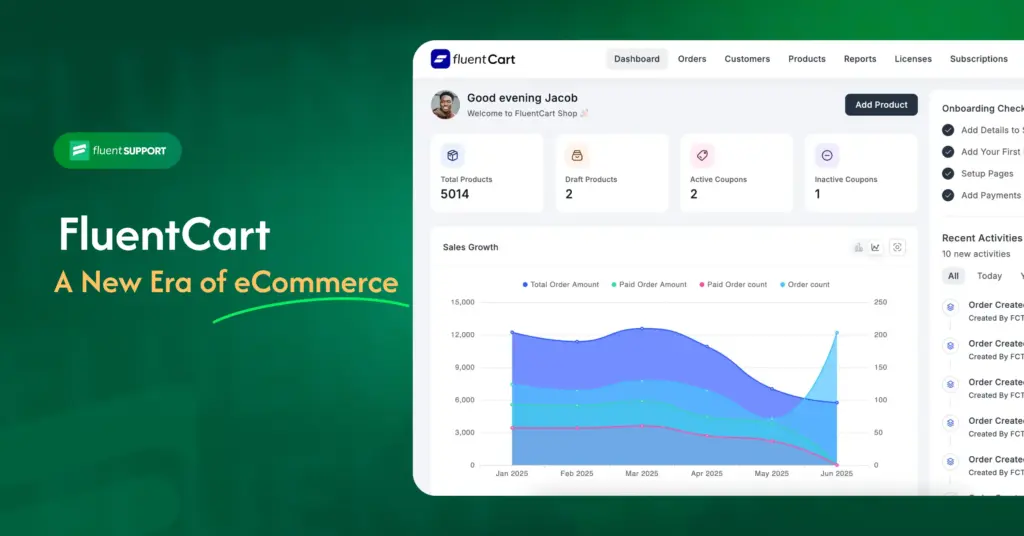
50+ Customer Experience Statistics You Must Know in 2025
In a world where customers are increasingly in control, businesses that prioritize customer experience (CX) are the ones that thrive. By 2025, according to the customer experience statistics, CX is set to be the key differentiator, outpacing both product and price.
But what do the stats say?
And more importantly, how can you leverage these insights to future-proof your business? Let’s dig into the numbers and uncover actionable strategies for leveraging CX insights as we move into the future.
Customer experience statistics
Here are some of the most recent CX insights and trends that can shape your customer experience strategy for 2025 and beyond:
Market growth & investment in CX
The customer experience (CX) industry is rapidly expanding. Here’s how its growth and investments are shaping up:
- In 2023, the global market for customer experience management was valued at $12.04 billion, and it is projected to grow at an impressive compound annual growth rate (CAGR) of 15.8% from 2024 through 2030. (Grand View Research)
- 80% of businesses are planning to boost their investment in customer experience. (Zendesk)
- 80% of companies anticipate that CX will be the primary factor in their competition. (Gartner)
Importance of CX to customers
Why does customer experience matter so much? These figures show its importance to customers:
- 65% of consumers have switched to a different brand due to poor customer experiences. (Khoros)
- After experiencing more than one bad interaction, around 80% of customers would rather do business with a competitor. (Zendesk CX Trends)
- Only 20% of consumers would forgive a company after a bad experience if they previously rated the customer service as “very poor,” while nearly 80% would forgive a bad experience if they considered the service “very good.” (Qualtrics XM Institute)
- Consumers are most likely to make phone calls when purchasing insurance (68%), healthcare (67%), telecom services (64%), automotive products (61%), home services (60%), financial services (60%), and travel (53%). (Invoca)
- 79% of consumers who voiced complaints about poor customer experiences online said their concerns were ignored. (RightNow Technologies)
- Three out of four consumers report that a negative interaction with a business can ruin their day. (Zendesk CX Trends)
- Similarly, 75% of consumers are willing to spend more with businesses that provide a positive customer experience. (Zendesk CX Trends)
- More than 50% of consumers will turn to a competitor after just one poor experience. (Zendesk CX Trends)
- 91% of dissatisfied customers will leave without voicing their concerns. (Kolsky)
- Around 75% of customers who rated a company’s CX as “very good” are likely to forgive them for a poor experience. (Qualtrics XM Institute)
- Approximately 73% of consumers prefer to switch to a competitor after multiple bad experiences. (Zendesk)
- 80% of customers value their experience with a company as much as the products or services themselves. (Salesforce Customer Report)
- More than 50% of consumers have reduced their spending after one bad experience, leading to a global loss of $4.7 trillion in consumer spending. (Qualtrics)
Personalization in CX
Customers value personalized experiences. Here’s why personalization is crucial:
- 65% of consumers expect companies to deliver personalized experiences, and 72% will stay loyal if they get faster delivery in service. (Salesforce Research)
- 79% of customers believe that personalized service is more crucial than personalized marketing—customers want to feel recognized right from the start. (Gladly)
- 80% of buyers are more likely to purchase from brands that offer personalized customer experiences. (Freshworks)
- Adding personalized experiences to your online platforms can boost your conversion rate by approximately 8%. (Trustpilot)
- Six out of ten consumers think businesses should utilize the data they collect to create personalized experiences. (Zendesk CX Trends)
- 59% of customers expect businesses to tailor their experiences based on collected data. (Zendesk CX Trends)
- Companies leading in personalization enjoy a 1.5 times higher customer loyalty rate compared to their peers. (Deloitte)
- 63% of consumers are willing to share more personal information with companies that provide a superior experience. (PwC)
- 77% of customers are open to exchanging personal data for a better experience. (Freshworks)
- Providing an exceptional experience can significantly boost customer loyalty, with satisfied customers having a lifetime value 6 to 14 times greater than that of dissatisfied ones. (Bain and Company)
- 91% of CX leaders believe AI will build trust through greater transparency in AI-driven decisions. (Zendesk CX Trends)
The impact of good & bad CX
A good CX can greatly benefit your business, while a bad CX can cause harm. Here’s how:
- 72% of customers are likely to share their positive experiences with others. (Salesforce)
- Another 72% will tell six or more people if they have had a satisfying experience. (Esteban Kolsky)
- On the flip side, 13% of customers will share a negative experience with 15 or more people. (Esteban Kolsky)
- Businesses that prioritize customer experience can see their revenue increase by 80%. (Zippia)
- A 5% increase in customer retention can lead to a 25% boost in profitability. (Forrester)
- Consumers are nearly twice as likely to purchase a 5-star experience compared to a 1- or 2-star experience. (Qualtrics XM Institute)
- Only 1 out of 26 dissatisfied customers will actually share their negative experience with a business—the rest will just leave. (Esteban Kolsky)
- Only 15% of consumers say they rarely or never have to repeat themselves. (Invoca)
Digital & omnichannel CX
Customers now expect seamless digital experiences across various platforms. Here’s why it’s important:
- 59% of customers think that businesses must offer advanced digital experiences to maintain their loyalty. (Salesforce CX)
- 37% of consumers abandon a purchase or leave a negative review after a poor digital shopping experience. (SiteCore)
- Nine out of ten customers desire an omnichannel experience with consistent service across all communication methods. (CX Today)
- 40% of consumers identified “multiple options for communication” as the most crucial feature of a company’s customer service. (Business Wire)
Employee impact on CX
The engagement and tools your employees use significantly affect the customer experience:
- Three out of four employees are more motivated to work when their organization emphasizes CX. (Zendesk CX Trends)
- 58% of agents say that a lack of consumer data often results in negative customer experiences. (Zendesk CX Trends)
- Over half of customer service agents believe that their organization’s approach to service directly impacts negative customer experiences. (Zendesk CX Trends)
- 72% of leaders believe that merging teams and responsibilities related to customer experience will improve operational efficiency. (Zendesk CX Trends)
- 44.5% of customer service professionals plan to scale CX operations by hiring more support representatives and incorporating AI (and automation) into the customer experience. (HubSpot, State of Customer Service)
References
Why customer experience (CX) matters more than ever
It’s not just about keeping customers happy anymore—it’s about survival. According to recent studies, 86% of customers are willing to pay more for a better experience.
This isn’t surprising when you consider that people today have more choices than ever before. If your business doesn’t meet customer expectations, they’ll move on to someone who will.
Consider WPManageNinja, the company behind Fluent Support, a WordPress help desk plugin. They’ve built their product around customer feedback, constantly iterating to meet the needs of their customers.
This focus on CX has paid off, as they’ve seen steady growth and loyalty from their user base. It’s clear that putting the customer first isn’t just a nice idea—it’s a necessity.
The key stats you need to know for 2025
To understand how to leverage CX insights, it’s important to look at the data. Here are some key stats that will shape customer experience strategies (CX) in 2025:

- 72% of customers expect personalized experiences. Personalization is no longer a luxury; it’s a basic expectation. Businesses that use data to tailor their offerings will see higher customer satisfaction and retention rates.
- By 2025, 89% of companies will compete primarily on CX. This means that if you’re not already focusing on customer experience, you’re going to be left behind. It’s not just about having a great product—it’s about how you deliver it.
- Companies that excel at CX see 1.5 times more engaged employees. There’s a direct correlation between employee engagement and customer satisfaction. When your team is happy, your customers are too.
- 96% of customers say customer service is important in their choice of loyalty to a brand. It’s clear that how you handle customer interactions plays a huge role in whether or not they’ll stick around.
How to leverage these customer experience (CX) insights
Now that we’ve got the stats, how do you use them to shape your CX strategy? Here are some actionable steps:
1. Prioritize personalization
Personalization is going to be key in 2025. Customers want to feel like you know them, and that means using data to tailor your interactions. Whether it’s through personalized emails, targeted offers, or simply remembering a customer’s preferences, these small touches can make a big difference.
For instance, WPManageNinja uses AI-driven analytics in Fluent Support to understand user behavior and preferences. This allows them to create more tailored customer interactions, which in turn boosts satisfaction and loyalty.
2. Focus on employee engagement
Your employees are the front line of your customer experience. If they’re not engaged, it’s going to show. Invest in training, provide the tools they need to succeed, and make sure they feel valued. Happy employees lead to happy customers, and that’s a fact.
Look at Zappos as an example. Their commitment to employee satisfaction is legendary, and it directly translates into top-notch customer service. They understand that when employees are motivated, they’re more likely to go above and beyond for customers.

3. Invest in customer service
With 96% of customers citing customer service as a key factor in their loyalty, this is an area you can’t afford to overlook. Ensure your support team is equipped to handle issues efficiently and empathetically. Consider implementing AI tools that can help streamline the process while still maintaining a human touch.
WPManageNinja has integrated AI into Fluent Support, not to replace their support team, but to enhance it. The AI helps with quick responses and provides agents with the information they need to solve issues more effectively, which leads to a better customer experience.
4. Use data to drive decisions
Data is your best friend when it comes to improving customer experience. Monitor key metrics like customer satisfaction scores, Net Promoter Score (NPS), and customer effort scores. Use this data to identify areas where you can improve and track your progress over time.
Ritz-Carlton is a prime example of a company that uses data effectively. They track every interaction a guest has with their brand, from check-in to check-out, and use this information to continuously refine their experience. This level of attention to detail is what sets them apart in the luxury hospitality industry.
The future of CX: what to expect
As we move towards 2025, customer expectations are only going to get higher. The companies that will thrive are the ones that not only meet these expectations but exceed them. Here’s a glimpse of what the future of CX might look like:
- Increased use of AI and automation: AI will play a bigger role in personalizing the customer experience. From chatbots to predictive analytics, these tools will help businesses deliver faster, more accurate responses. However, the human touch will still be crucial. AI should enhance, not replace, human interaction.
- Omnichannel experiences: Customers will expect a seamless experience across all channels, whether they’re shopping online, in-store, or via a mobile app. Businesses will need to ensure that their branding, messaging, and service are consistent no matter where the interaction takes place.
- Sustainability as a CX factor: As consumers become more environmentally conscious, they’ll expect the brands they support to do the same. Companies that can demonstrate a commitment to sustainability will gain a competitive edge in customer experience.
- Real-time personalization: As data collection methods improve, real-time personalization will become the norm. Customers will expect offers, recommendations, and communication that are tailored to their immediate needs and behaviors.
Wrapping it up
The stats don’t lie. Customer experience is going to be the deciding factor for businesses in 2025. But it’s not just about knowing the numbers; it’s about acting on them.
By prioritizing personalization, focusing on employee engagement, investing in customer service, and using data to drive decisions, you can set your business up for success in the future.
Remember, the companies that get CX right aren’t just creating satisfied customers. They’re building loyal communities. As the business landscape continues to evolve, those who put customer experience at the forefront will be the ones who thrive.
So, take these customer experience statistics and start applying them today. The future of your business depends on it.
Start off with a powerful ticketing system that delivers smooth collaboration right out of the box.
Hi, I’m Sajid Sadman, a digital marketer specializing in customer service and user experience. With a passion for content writing, I create engaging and impactful content to enhance user satisfaction.












Leave a Reply